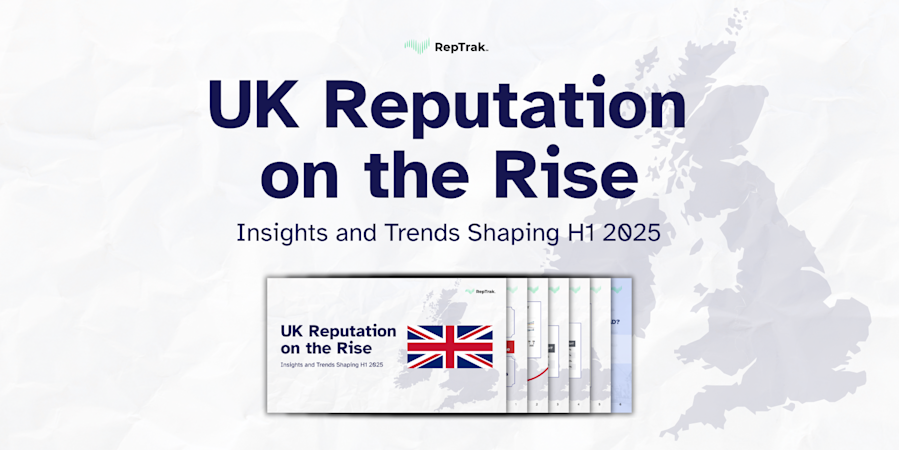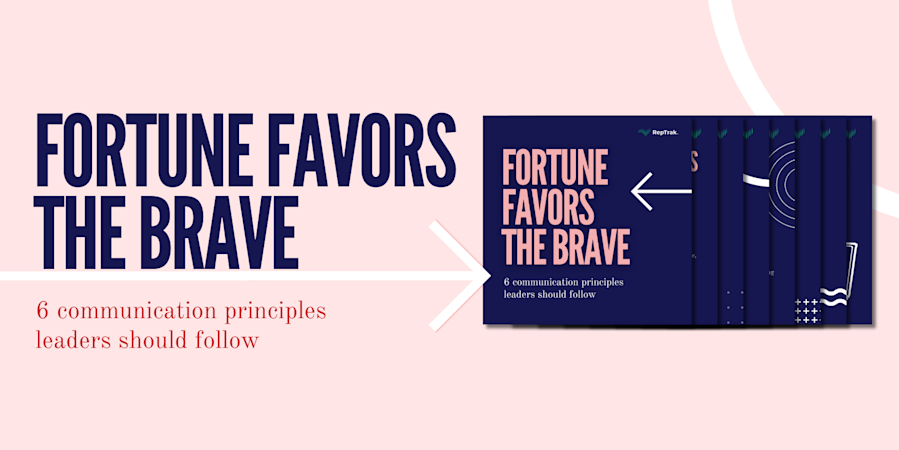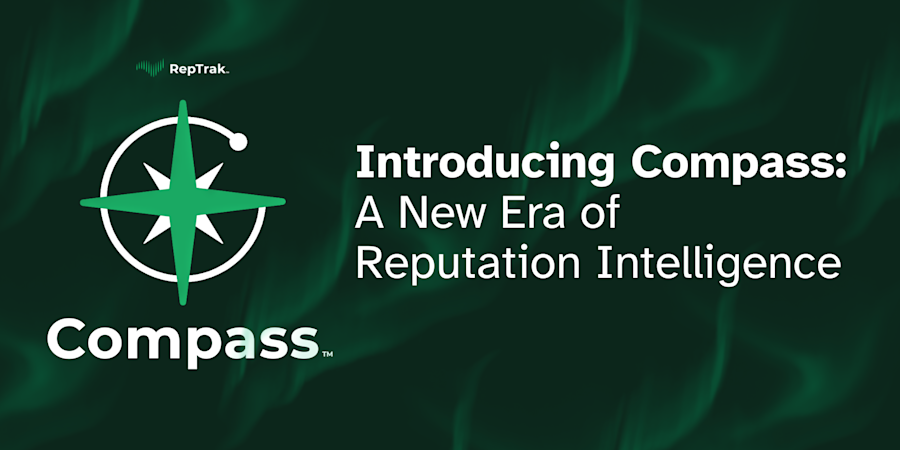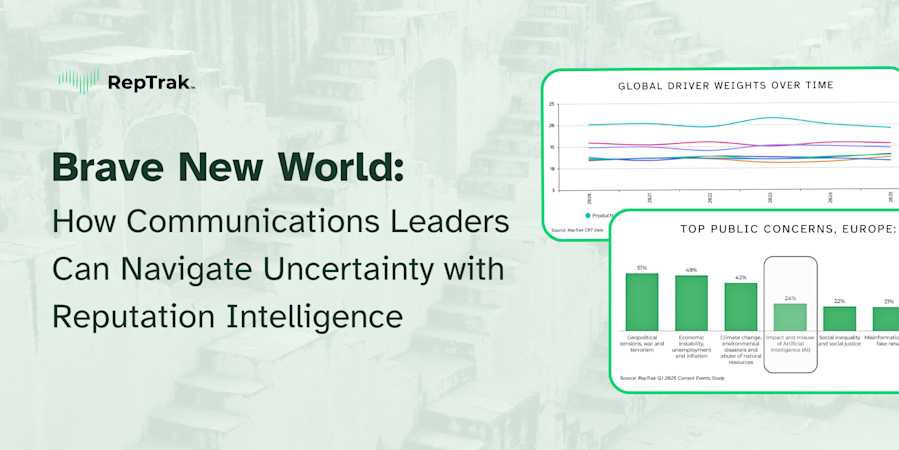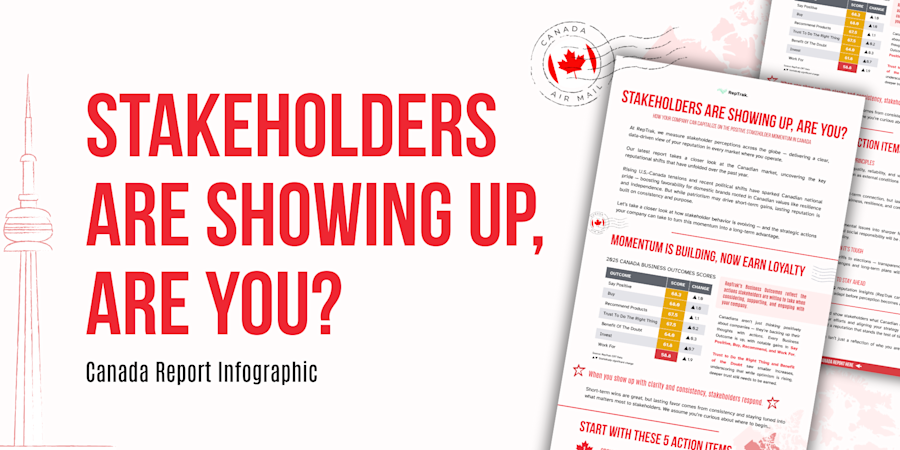What is the Reputation Economy?
Blog Post31 Jan, 2019
What is the reputation economy? Newsflash: you’re living in it.
If you want to know what the reputation economy is, check your company’s reviews on Glassdoor or Yelp, check your organic audience engagement on social media, check your call center’s customer satisfaction scores.
Fans of Netflix’s Black Mirror who caught the season-three premiere episode, “Nosedive” (an eerily spot-on satire), know the potential future state of how perception can dictate the rise and immediate fall of a person (or company’s) reputation.
While digital reputation is part of this, the reputation economy is predominantly controlled by far more influential, and perhaps complex, factors—having a meaningful corporate purpose, becoming an employer of choice, managing data privacy, and other key reputation global trends are what determine if the people who matter most to your business trust you.
How to navigate the reputation economy? Build trust.
“Stakeholders want to be able to trust you — trust that as a company you will deliver on your promises, no matter what they are. And that’s at the heart of your reputation.” – Kasper Ulf Nielson, Co-Founder and Chief Product Officer at The RepTrak Company
The ways organizations must build and maintain trust and earn credibility continues to evolve. The reality is that trust must be earned. And it’s well worth the time. If your company earns the trust to have a good reputation among your consumers, employees, and investors, you can put real money against it.
...And build trust with the right people
Identifying the right audience is half the battle, but we can safely presume that most organizations must earn the trust of at least these three similar stakeholder groups: consumers, employees, investors.
Customers
A good reputation with customers means more products or services sold. In a survey by Hubspot, it was determined that 62% of consumers rely on online reviews to make purchase decisions, and 70% believed the reviews of other consumers. In fact, a product will see higher returns if it has more than 50 reviews.
Employees
A reputation as a great place to work makes you attractive to quality candidates. According to Glassdoor, while job seekers are looking for good benefits, salaries, and commutes, they’re also factoring employee reviews into their research. And, according to research done by The RepTrak Company, 57% of people would work for a company with an excellent reputation.
Investors
And if your investors like you, well, that’s just money in the bank. The more trustworthy you are with consumers and employees, the more value your company gains. Your reputation is part of what thought leaders often refer to as your intangible value, which, by the way, makes up 81% of market value.
Yes, that’s a lot! So, what are stakeholders looking for before they place their trust in a brand? And how can you cultivate and maintain a great reputation?
What makes up a good reputation?
When we talk about companies with good and excellent reputations, there are a few characteristics that keep coming up. Let’s take a look at them.
Good Customer Service We all know that good customer service means good customer retention. It also translates into brand loyalists who recommend you to others. But beyond getting the answers they want, consumers are giving companies who make the experience fun, too, higher ratings.
Spotify, for example, responds to customer questions and complaints through their Twitter handle and ends every interaction with a song.
Spotify is one of the many companies we measure, and they have an almost excellent reputation score of 79.7 out of 100 in their ability to meet customer needs.
Transparency Now more than ever, consumers and investors want to invest their money in genuine brands that keep the lines of communication open, particularly when it comes to how they do business.
Clothing company Everlane has been given props for their absolute transparency in their pricing standards. They even drop their prices if the cost of materials drops.
Social responsibility Both as consumers and employees, Millennials are attracted to companies that practice sustainability. And both Millennials and members of Gen Z are willing to spend more with companies with a commitment to social responsibility.
Outdoor company Patagonia is a particular favorite with Millennials for their consistent environmental outreach.
Excellent company culture In the last decade, companies have added all kinds of perks to cultivate a good culture which proves to be an invaluable commodity. Employers of choice, like Google, have good or excellent reputation scores in areas like sustainable growth, products, and responsible behavior.
Sven Klingemann, PhD Director of Research The RepTrak Company [email protected]

